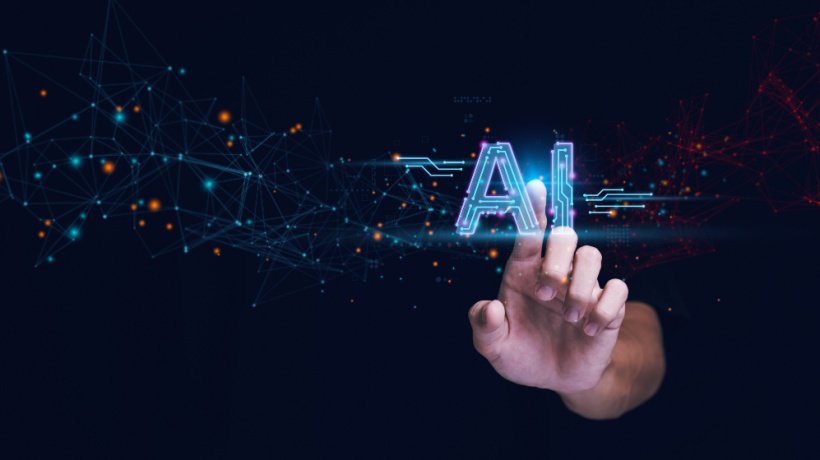Revolutionizing Learning: Generative AI In L&D
Generative AI has transcended the realm of buzzwords, becoming a compelling business imperative for sustainable growth and profitability. Its wide applicability across industries is projected to drive exponential growth, with an impressive CAGR of 42% expected between 2023 and 2032. Generative AI's emergence in the Learning and Development (L&D) space is redefining how organizations nurture a culture of continuous learning, ensuring workforce adaptability and relevance.
As we journey toward a future that hinges on digital transformation and continuous innovation, embracing Generative AI in corporate L&D opens doors to boundless possibilities. By staying at the forefront of this transformative technology, businesses can secure a competitive edge, foster employee growth, and achieve sustainable success in a dynamic, ever-evolving world.
Applications Of Generative AI In The Learning And Development Space
Until very recently, the L&D segment used AI only to accelerate content creation. At the granular level, this only simplified the task of L&D professionals, rather than the employees for whom the courses were developed. With rising demand for employee upskilling and reskilling, the industry is reimagining how generative AI can and should be applied to benefit the end user. L&D teams are now looking for ways to ensure tangible results, such as performance improvement, business goal achievement, cross-vertical knowledge transfer, and much more.
1. Powerful Analytics To Identify Knowledge And Skill Gaps
The strength of a generative AI LMS lies in assimilating vast datasets and leveraging technologies, such as Natural Language Processing (NLP) and machine learning (ML), to deliver strategic insights. With the automation of business processes, it is imperative to build powerful data analytics that can track employee performance indicators such as competencies, accuracy, and speed to make informed decisions. Additionally, the causes of employee dissatisfaction and attrition may also be discovered via AI-driven insights. This adds a new dimension to L&D’s course development processes.
By combining skill and employee engagement insights with business goals, generative AI can help L&D teams and leaders identify skill gaps and skill-transfer opportunities to create targeted courses. Machine Learning algorithms continually analyze learner interactions, achievements, and feedback to refine and optimize the delivery of content. Compiled skill data may also help in succession planning in the long run. This fosters a culture of informed decision-making within the organization.
2. Personalized Training
The vast amounts of employee data can also be used to personalize training according to their job roles, learning goals, and individual career growth aspirations. Further, augmenting content with audio and video materials can facilitate inclusion, enhance engagement, and improve course effectiveness. The content can be broken down into digestible modules to facilitate targeted allocation. This could foster a culture of not using generic, lengthy, and time-consuming courses to train every employee, regardless of relevance.
3. Adaptive Learning
AI-powered LMSs are equipped to assess and report when reinforcement lessons, or new ones as per changes in technology or business processes, are needed. As per the need, the L&D teams can create, review, and redesign learning resources. Analysis of learning outcome achievement and post-learning performance enhancement makes way for the continuous evolution of learning content. This helps in continuously aligning training content with dynamic business goals.
Generative AI LMSs Are Redefining L&D
L&D teams cannot do the groundwork of speaking to every employee and collating their concerns to design and deliver career enhancement opportunities. A generative AI LMS, driven by surveys, employee feedback, and analytics, can be instrumental in redefining course design and development. With targeted, adaptive, and personalized AI-powered course development, the cost of training can be significantly reduced, while visibility into ROI can be magnified.
The underlying capability of cloud-based LMSs to scale up or down according to business requirements makes the overall L&D vertical effective and efficient without the need for businesses to allocate additional resources. Additionally, an advanced API-based LMS can be seamlessly integrated with an organization’s existing ecosystem to become operational without any downtime or need for extensive installation or training efforts.
Generative AI presents a game-changing opportunity for any organization's Learning and Development landscape. By leveraging personalized learning, targeted content delivery, and seamless system integration through an AI-driven LMS, organizations can achieve remarkable cost savings and substantial scalability. Embrace adaptive learning to efficiently bridge knowledge gaps and position your organization at the forefront of success in this dynamic business environment. Stay ahead of the curve and unlock the true potential of AI in L&D!
